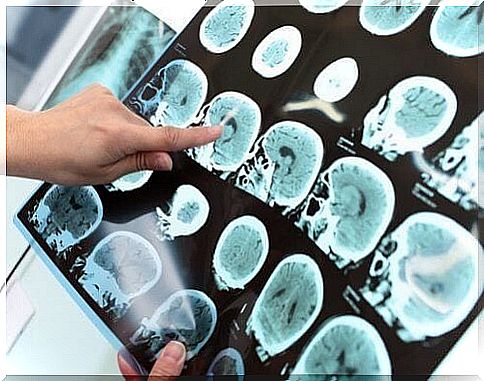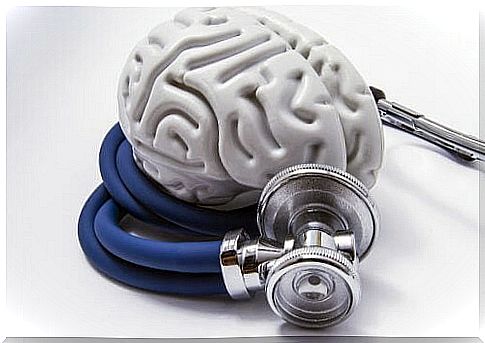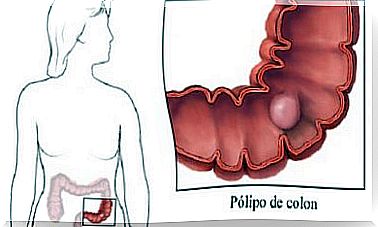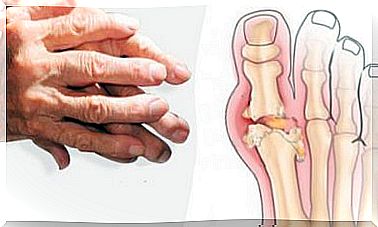Major Neurocognitive Disorder

Major neurocognitive disorder is a disease in which higher brain functions are affected as a consequence of neuronal damage. Over time, the patient will have his autonomy affected even in the most daily activities.
Today, as life expectancy increases with the consequent aging of the population, major neurocognitive disorder is considered a global problem. There is no cure for this disease, but the symptoms can be treated.
Major neurocognitive disorder
Neurocognitive disorders, as a generic concept, often affect memory, perception, or problem solving. That is, the so-called neurocognitive functions.
The most direct neurocognitive disorders include amnesia, dementia, and delirium. Major neurocognitive disorder usually affects the elderly over 60 years of age.
According to data from the World Health Organization, there are approximately 50 million cases in the world.
Symptoms and stages

When it comes to major neurocognitive disorder, the main symptoms are manifested through affections in different areas of mental function. The patient experiences a degenerative process in his autonomy and ability to carry out activities. The following stand out:
- language and perception
- Memory, thought or judgment.
- The patient’s emotional behavior or personality.
In addition, there are several symptoms related to the disorder that the patient may experience: hallucinations, depression, aggression or delusions. In the evolutionary process of major neurocognitive disorder, three stages can be distinguished, which we will describe below.
early stage of the disease
The first symptoms consist of mild and gradual manifestations. Above all, the patient experiences infrequent forgetfulness, and episodes of disorientation in time or space.
Intermediate stage of major neurocognitive disorder
As the disease develops, the manifestations will become more evident. The patient starts to need help even to carry out regular activities, such as washing, shopping or paying bills.
In addition, forgetfulness becomes more serious and frequent, and patients can become disoriented in their own home with mild episodes of amnesia. Difficulties in communication can also be experienced.
advanced stage
In the more advanced stage of major neurocognitive disorder, as a progressive worsening occurs, the patient finds it increasingly difficult to carry out activities, and may even present an aggressive behavior. In the end, there can be total dependency and inactivity.
Alzheimer’s as a form of major neurocognitive disorder

Alzheimer’s is the most common form of dementia. In fact, this disease appears in 60-80% of cases in which major neurocognitive disorder is diagnosed. There is currently no direct cure for Alzheimer’s disease, just as there is no cure for major neurocognitive disorder.
Yes, there are a number of symptom-focused treatments to improve the patient’s quality of life. Furthermore, these treatments can delay the development of the disease. To this day, Alzheimer’s disease is one of the priorities of biomedical research.
Treatment of major neurocognitive disorder
It must be remembered that major neurocognitive disorder is currently incurable. The progressive development of the disease is inevitable. Therefore, the treatment is focused on improving the patient’s quality of life.
First, the importance of teamwork by nurses, physicians and social workers should be mentioned , as it is a multifactorial disorder.
In the treatment of this disorder, the role of the main caregiver is fundamental, as it is he who controls the evolution of the disease. It is very important to avoid complications, adhere to treatment and monitor medication side effects.
Family support will be essential, so that the patient is always accompanied. Furthermore, occupational therapies and support networks can be of great help to the patient.
In many cases it is interesting to prevent certain secondary causes of the disease, such as hypertension, cholesterol or obesity. The idea is to act against the risk factors that may predispose to these diseases.
In conclusion, there are a number of treatments used for certain symptoms that may be associated with major cognitive impairment. These symptoms are hallucinations, delusions, depression or aggression, among others. The medications used in these cases are antipsychotics, antidepressants and anticonvulsants.








